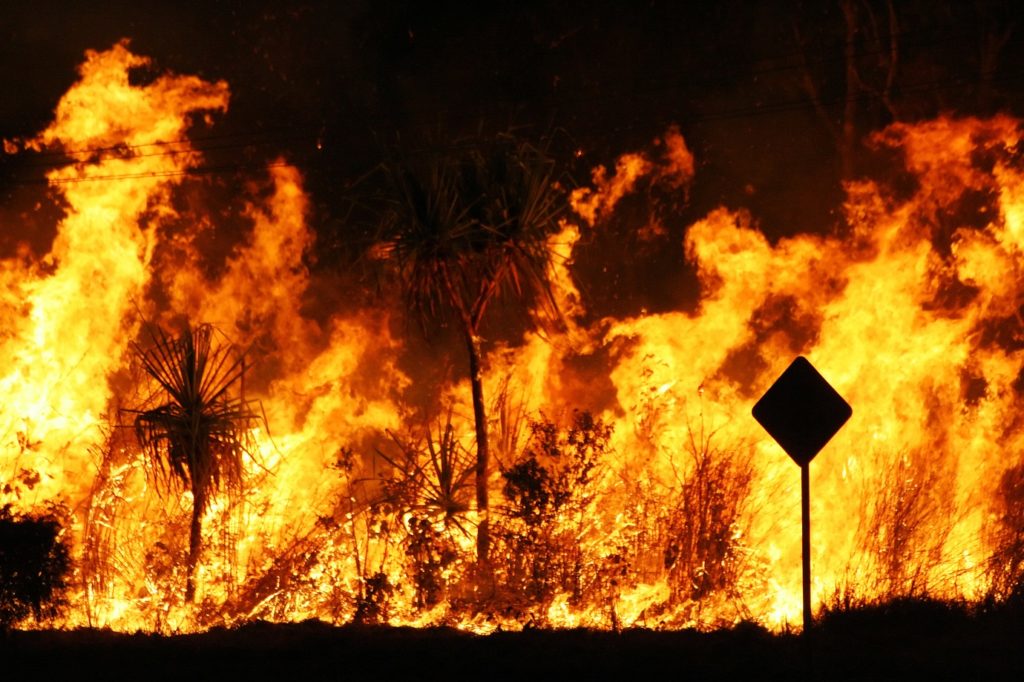Without swift action, unchecked climate change could cost the Australian economy $3.4 trillion and see 880,000 jobs lost over the next 50 years, a new report says.
The research from Deloitte Access Economics suggests that failure to mitigate the effects of climate change will, in average annual terms, reduce Australia’s economic growth by 3 per cent per year, and cost around 310,000 jobs per year.
On the other hand, limiting global warming to 1.5C, and introducing policies consistent with meeting net zero emissions by 2050 could see Australia’s economy grow by $680 billion and increase GDP by 2.6 per cent in 2070. This approach to the climate crisis would add over 250,000 jobs the Australian economy over the next 50 years.
The report says that Australia will pay a high price if there is global failure to deliver a green recovery from the COVID-19 pandemic, and that it is in our national interest to be part of – if not leading – a global shift to net zero emissions.
Without an adequate response, Australia will experience an economic hit equal to COVID-19 each year by 2050, and continued delayed action will also increase inevitable mitigation costs.
“As it becomes abundantly clear that not only are the costs of climate change rising each year, it is also evident that the costs associated with mitigating the risks are rising with each year of delayed action,” the report, authored by Pradeep Philip, says.
“Deloitte Access Economics believes where it is accepted that human induced global warming causes climate change, it must also be accepted that a ‘business as usual’ growth trajectory is innately miscalculated if it does not account for the damages and impacts of climate change.”
A scenario where there is no policy action will not result in uninterrupted economic growth, instead, a pathway that does not actively and rapidly mitigate climate change will result in significant economic losses.
“While Australia may choose a pathway that does not mitigate climate change in line with the rest of the world, it will not be spared the economic cost if – and as – the world warms.”
According to the report, there is no ‘standard’ economic recovery that can be forecasted that does not include the damaging effects of the climate crisis. Agriculture, construction, manufacturing, mining and tourism will be among the hardest hit industries.
The policy choices that the Australian government makes in the next 2-3 years will shape the next 20-30 years, according to the report. Here, there is no such thing as ‘green’ policies, only good policies.
“And it is not about ‘green’ investments or policy, it is about what is good. Australia’s climate for growth requires good policy, good economics and good investments that mitigate risk and creates return to both business, society and the economy,” the report says.
Recovery from the pandemic should be about, “Good investments that make the economy robust to future challenges and avoids the economy running headlong into another economic wall in just a few years’ time.”
“Recovery from the pandemic is crunch time to put emissions in structural decline and mitigate the worst effects and risks from a changing climate.
“All economies are recovering from covid off an economic baseline that was already disrupted and exposed to risk – because climate change and economic transition is not a scenario, it is the baseline.”
As it stands, the Australian government has not committed to achieving net zero emissions by 2050, and has only stated it will reach net zero emissions by sometime in the second half of this century, with no firm target in place.
Last week, Prime Minister Scott Morrison said he would not be influenced by other countries’ emissions policies, despite four of Australia’s top trading partners – China, Japan, Britain and South Korea – adopting net zero emissions targets.
“Australia will set our policies here. Our policies won’t be set in the United Kingdom, they won’t be set in Brussels, they won’t be set in any part of the world other than here,” he said.



